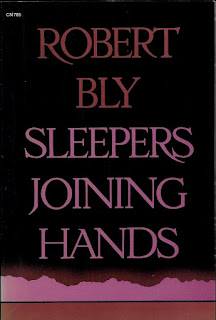Robert Bly
ROBERTBLY
Some people love only money
and some people love
only eternity. I’m
halfway in-between.
THE SUFI
POETS believed in a universe beyond the sensory world, a place they called the mundus imaginalis, which is "a
concrete spiritual world of archetype-Figures, apparitional Forms, Angels of
species and of individuals," and it seems to me that it is there (or some
place much like it) that Robert Bly has often gone to create his best work.
Bly's poems keep opening up interior realms, like floors giving way, and have
great spiritual access. At times he is Thoreau in Minnesota, scrupulously
observing the natural world, preserving the wilderness that is both within and
without, unleashing his wrath against imperial power. "The walls of my
poetry are splashed with blood," he writes in his poem "The
Trap-Door," "I don't want to be inward." At other times, he is
like the fourteen-year-old Jabir the Brilliant arranging sounds so that they
become holy. "Friends," he declares in the same poem, "each day
I crawl over and kiss some of the books I love." Political outrage and
spiritual reverence sit side by side in Bly's work.
These thoughts are occasioned by Bly's collection The Night Abraham Called to the Stars
(2001), which received the Maurice English Poetry Award for a distinguished
book of poems published during the preceding calendar year by a poet over
fifty. Maurice English, who was a poet, a translator, and the director of the
University of Pennsylvania Press, had a keen intelligence and a lifelong
devotion to poetry, and Bly is a worthy recipient of an award in his honor.
Bly has often found models for his poems in other cultures,
and in this book he displays his reverence for Islamic poetry, especially the
work of Rumi and Hafez, by adapting the ghazal form. He ignores some key traditional
elements of the ghazal, but he does capture its feeling of boundless surprise.
What he especially loves about the form is how each stanza operates as an
independent unit. The subject matter change from stanza to stanza, which gives
a sense of leaping around, of rapidly shifting landscapes. Meanings accrue through
association, and there is a liberating feeling of freedom within the prescribed
form.
A sacred sense of gratitude animates Bly's poems, which move
fluently between the material and the ethereal. Like Abraham from the Koran,
the figure he writes about so well in the title poem of his new collection, he
is "a man in love with the setting stars."
THE NIGHT ABRAHAM
CALLED TO THE STARS
Do you
remember the night Abraham first called
To the stars?
He cried to Saturn: “You are my Lord!”
How happy he
was! When he saw the Dawn Star,
He cried,
"You are my Lord!" How destroyed he was
When he
watched them set. Friends, he is like us:
We take as
our Lord the stars that go down.
We are
faithful companions to the unfaithful stars.
We are
diggers, like badgers; we love to feel
The dirt
flying out from behind our hind claws.
And no one
can convince us that mud is not
Beautiful.
It is our badger soul that thinks so.
We are ready
to spend the rest of our life
Walking with
muddy shoes in the wet fields.
We resemble
exiles in the kingdom of the serpent.
We stand in
the onion fields looking up at the night.
My heart is
a calm potato by day, and a weeping,
Abandoned
woman by night. Friend, tell me what to do,
Since I am a
man in love with the setting stars.
Edward
Hirsch: Poet’s Choice
Six Winter Privacy
Poems
1
About four,
a few flakes.
I empty the
teapot out in the snow,
feeling
shoots of joy in the new cold.
By
nightfall, wind,
the curtains
on the south sway softly.
2
My shack has
two rooms; I use one.
The
lamplight falls on my chair and table
and I fly
into one of my own poems-
I can't tell
you where-
as if I
appeared where I am now,
in a wet
field, snow falling.
3
More of the
fathers are dying each day.
It is time
for the sons.
Bits of
darkness are gathering around them.
The darkness
appears as flakes of light.
4
Sitting Alone
There is a
solitude like black mud!
Sitting in
this darkness singing,
I can't tell
if this joy
is from the
body, or the soul, or a third place.
5
Listening to Bach
There is
someone inside this music
who is not
well described by the names
of Jesus, or
Jehovah, or the Lord of Hosts!
6
'When I
woke, new snow had fallen.
I am alone,
yet someone else is with me,
drinking
coffee, looking out at the snow.
Robert Bly: Sleepers Joining Hands


Comments
Post a Comment